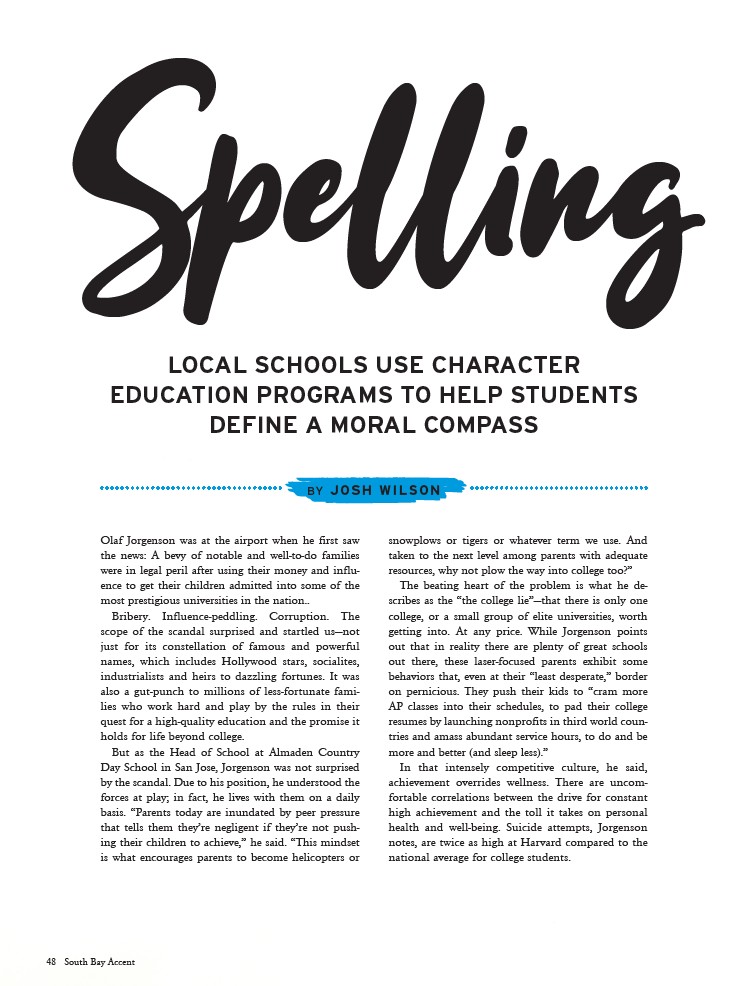
Spelling LOCAL SCHOOLS USE CHARACTER
EDUCATION PROGRAMS TO HELP STUDENTS
DEFINE A MORAL COMPASS
BY JO SH WILSON
Olaf Jorgenson was at the airport when he first saw
the news: A bevy of notable and well-to-do families
were in legal peril after using their money and influence
to get their children admitted into some of the
most prestigious universities in the nation..
Bribery. Influence-peddling. Corruption. The
scope of the scandal surprised and startled us—not
just for its constellation of famous and powerful
names, which includes Hollywood stars, socialites,
industrialists and heirs to dazzling fortunes. It was
also a gut-punch to millions of less-fortunate families
who work hard and play by the rules in their
quest for a high-quality education and the promise it
holds for life beyond college.
But as the Head of School at Almaden Country
Day School in San Jose, Jorgenson was not surprised
by the scandal. Due to his position, he understood the
forces at play; in fact, he lives with them on a daily
basis. “Parents today are inundated by peer pressure
that tells them they’re negligent if they’re not pushing
their children to achieve,” he said. “This mindset
is what encourages parents to become helicopters or
48 South Bay Accent
snowplows or tigers or whatever term we use. And
taken to the next level among parents with adequate
resources, why not plow the way into college too?”
The beating heart of the problem is what he describes
as the “the college lie”—that there is only one
college, or a small group of elite universities, worth
getting into. At any price. While Jorgenson points
out that in reality there are plenty of great schools
out there, these laser-focused parents exhibit some
behaviors that, even at their “least desperate,” border
on pernicious. They push their kids to “cram more
AP classes into their schedules, to pad their college
resumes by launching nonprofits in third world countries
and amass abundant service hours, to do and be
more and better (and sleep less).”
In that intensely competitive culture, he said,
achievement overrides wellness. There are uncomfortable
correlations between the drive for constant
high achievement and the toll it takes on personal
health and well-being. Suicide attempts, Jorgenson
notes, are twice as high at Harvard compared to the
national average for college students.